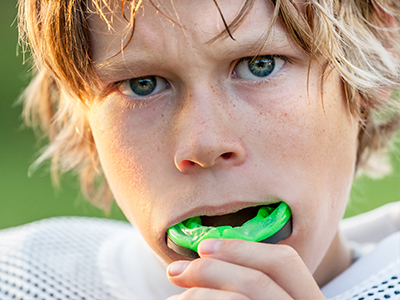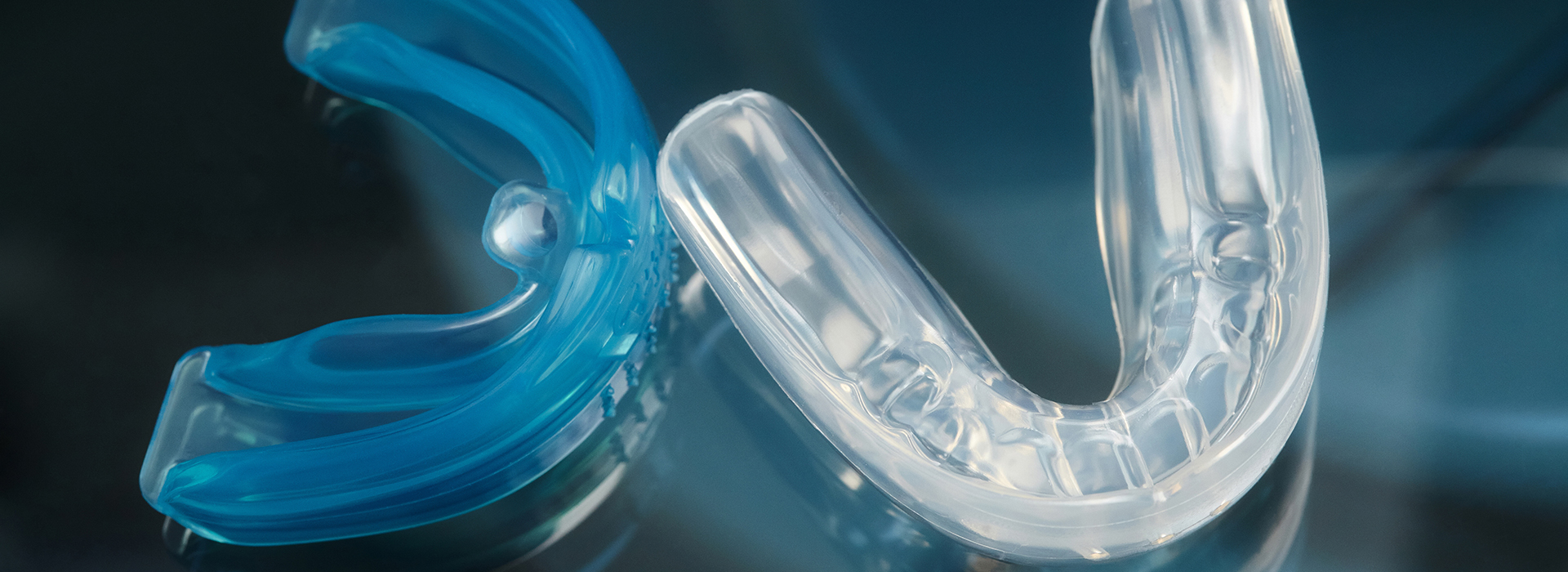
Our Office
9055 S Roberts Rd
Hickory Hills, IL 60457
Existing Patients: (708) 598-4055
New Patients: (708) 215-2741
Visit Us Online

When it comes to sports, safety should always be a top priority. One of the most overlooked pieces of protective gear is the humble mouthguard. Yet, these small devices can make a huge difference in preventing serious injuries during physical activities. Let's explore why they're so important and how professionally designed sports mouthguards can give athletes an edge.
Sports injuries are a common occurrence, with millions happening each year worldwide. While some are minor, others can be severe and even life-altering. According to the National Youth Sports Safety Foundation, more than 3 million teeth are knocked out in youth sporting events annually – that's one every 10 minutes!
Protective gear plays a crucial role in minimizing these risks. Helmets, padding, and guards for various body parts help absorb impact forces, reducing the likelihood of injuries. But what about your mouth? It might not seem as vulnerable, but it's actually quite fragile. A simple fall or collision can result in chipped teeth, knocked-out teeth, fractured jaws, or even concussions.
This is where sports mouthguards come into play. They're designed to protect your teeth and jaws from impact injuries, providing a barrier between your mouth and potential harm. By wearing one, you're not only safeguarding your oral health but also reducing the risk of more serious head injuries by preventing your lower jaw from being forced up into your upper jaw.
A good sports mouthguard should be comfortable, fit well, and provide adequate protection. But what makes one better than another? Let's break down the key components that set apart top-notch mouthguards from their inferior counterparts.
Firstly, consider the material used. High-quality mouthguards are typically made of a specialized plastic called ethylene vinyl acetate (EVA). This material is chosen for its ability to absorb and distribute impact forces evenly across the guard, reducing the risk of injury. Lower-quality guards may use cheaper materials that don't offer the same level of protection.
Next, look at the design. A well-designed mouthguard will cover your teeth and gums properly while allowing you to breathe and speak with ease. It should also be custom-fitted to your mouth for optimal comfort and protection. This is achieved through a process called impression-molding, where a dentist takes an imprint of your teeth and uses it to create a personalized guard.
Finally, consider the thickness of the mouthguard. Thicker guards generally offer better protection but can be bulkier and more uncomfortable. A good balance must be struck between protection and comfort to ensure you'll wear the guard consistently during activities.
You might be tempted to purchase a stock mouthguard from your local sporting goods store, but hear us out – investing in a professionally designed custom-made mouthguard could give you a significant advantage. Here's why:
Firstly, professional designs prioritize fit. A custom-made mouthguard is crafted specifically for your mouth, ensuring it stays in place during intense physical activity. This not only provides better protection but also allows you to focus on your performance without worrying about the guard shifting or falling out.
Secondly, professionally designed guards can be tailored to your specific needs. Whether you're an athlete with braces, a grinder, or someone who requires extra protection due to previous dental work, a professional can create a mouthguard that addresses these unique considerations. This ensures you get the most out of your protective gear.
Lastly, having your own unique impression made as part of the design process means any changes in your teeth over time can be accounted for. This ensures your guard continues to fit well and provide optimal protection even as your mouth develops or changes.
When it comes to sports mouthguards, there are several options available – each with its own set of pros and cons. Let's explore some common types to help you make an informed decision:
Each type has its place depending on your budget, needs, and preferences. However, for optimal protection and performance, we recommend investing in a professionally designed custom-made mouthguard.
Now that you understand the importance of sports mouthguards and what makes a good one, let's walk through how to choose the right guard for your needs:
Remember, no matter how well-designed your sports mouthguard is, it's only effective if you wear it consistently. Make sure to include wearing your guard as part of your regular pre-game routine so that protecting your smile becomes second nature.
Don't let a preventable injury sideline you from the game. Protect your oral health and enhance your performance with a professionally designed sports mouthguard. Contact us today at or to learn more about how we can help you find the perfect mouthguard for your needs.
